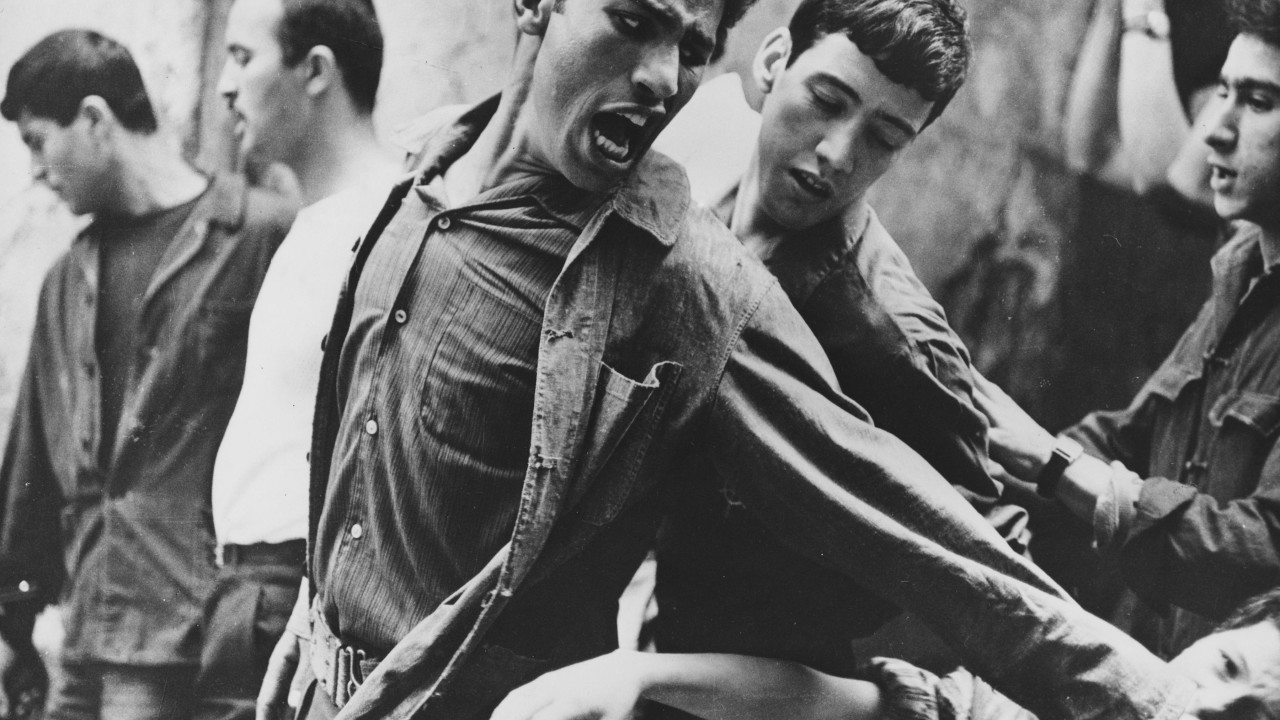Gillo Pontecorvo's gritty, stirring, and unabashedly anti-colonialist account of the urban war between battle-hardened French paratroopers and Algerian resistance fighters became an instant flashpoint for controversy and was banned in France until 1971.

The impartiality for which many critics have praised the film proves disputable, even dubious — does, for instance, the camera delectate in the close-ups of the imminent victims of a bombing (including an angelic boy enjoying an ice cream), or individuate them as innocent fatalities? At the other extreme, Pauline Kael egregiously claimed that "As a propaganda film, [Battle] ranks with Leni Riefenstahl's ... Triumph of the Will, and it's the one great revolutionary 'sell' of modern times." Regardless, The Battle of Algiers remains electrifying and ever-relevant: the ululations that ascend through the night sky over the Casbah to herald a new, independent nation in the film's stunning conclusion echo in the cries for freedom from tyranny during the Arab Spring.
JAMES QUANDT
Restored by Cineteca di Bologna and Istituto Luce — Cinecittà at L’Immagine Ritrovata laboratory, in collaboration with Surf Film, Casbah Entertainment Inc. and CultFilms.
Screenings
Bell Lightbox 4